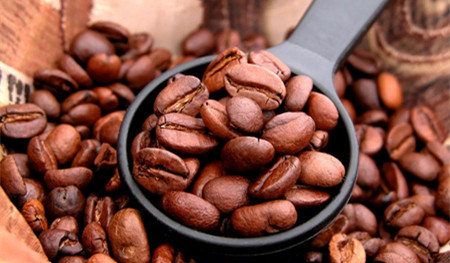The benefits of Kenyan boutique coffee what are the benefits of drinking coffee?

1. Coffee contains certain nutrients. Nicotinic acid in coffee contains vitamin B, which is higher in roasted beans. And there are free fatty acids, caffeine, tannic acid and so on.
2. Coffee is good for the skin. Coffee can promote metabolic function, activate digestive organs, constipation has a great effect. Bathing with coffee powder is a kind of thermotherapy, which has the effect of losing weight.
3. Coffee has a hangover effect. Drinking coffee after drinking will quickly oxidize acetaldehyde converted from alcohol and decompose it into water and carbon dioxide and expel it from the body.
4. Coffee can eliminate fatigue. To eliminate fatigue, it is necessary to supplement nutrition, rest and sleep, and promote metabolic functions, and coffee has these functions.
5. Three cups of coffee a day can prevent gallstones. For caffeinated coffee, which stimulates gallbladder contraction and reduces cholesterol in bile, Harvard University researchers found that men who drink two to three cups of coffee a day have a 40 percent lower chance of developing gallstones.
6. Drinking coffee regularly can prevent radiation damage. Radiation damage, especially the radiation of electrical appliances, has become a more prominent pollution. Indian atomic researchers reached this conclusion in mouse experiments and said it could be applied to humans.
7. Coffee's health benefits. Coffee has the functions of antioxidation and heart protection, strengthening muscles and bones, benefiting waist and knees, stimulating appetite, eliminating fat, eliminating accumulation, removing dampness from orifices, activating blood circulation and removing blood stasis, stopping wind and stopping spasm, etc.
8. The emotional impact of coffee. Experiments have shown that the average person absorbs 300 mg (about 3 cups of brewed coffee) of caffeine a day, which will have a good effect on a person's alertness and mood.
Important Notice :
前街咖啡 FrontStreet Coffee has moved to new addredd:
FrontStreet Coffee Address: 315,Donghua East Road,GuangZhou
Tel:020 38364473
- Prev

Introduction of Kenyan Coffee Taste of Kenyan Coffee appreciation of Kenyan Coffee
A brief history of Ethiopia, the origin of Arabica coffee trees in northern Kenya, but it was not until the beginning of the 20th century that it was engaged in coffee cultivation. In the 19th century, missionaries introduced Arabica trees from the leaves, but did not plant them in large quantities until 1893. Brazil's ancient bourbon coffee seeds were introduced to cultivate coffee on a large scale. In other words, the current Kenyan coffee has Brazilian blood.
- Next

Kenya Coffee-Kenya Coffee
Coffee arrived in Kenya in the 19th century, when Ethiopian coffee drinks were imported to Kenya via South Yemen. But it wasn't until the early 20th century that bourbon coffee trees were introduced by St. Austin's Mission (St. Austin Mission) was introduced. Kenyan coffee is mostly grown at altitudes of 1,500 to 2,100 meters and harvested twice a year. To ensure that only ripe berries are picked, people must be present
Related
- Does Rose Summer choose Blue, Green or Red? Detailed explanation of Rose Summer Coffee plots and Classification in Panamanian Jade Manor
- What is the difference between the origin, producing area, processing plant, cooperative and manor of coffee beans?
- How fine does the espresso powder fit? how to grind the espresso?
- Sca coffee roasting degree color card coffee roasting degree 8 roasting color values what do you mean?
- The practice of lattes: how to make lattes at home
- Introduction to Indonesian Fine Coffee beans-- Java Coffee producing area of Indonesian Arabica Coffee
- How much will the flavor of light and medium roasted rose summer be expressed? What baking level is rose summer suitable for?
- Introduction to the characteristics of washing, sun-drying or wet-planing coffee commonly used in Mantenin, Indonesia
- Price characteristics of Arabica Coffee Bean Starbucks introduction to Manning Coffee Bean Taste producing area Variety Manor
- What is the authentic Yega flavor? What are the flavor characteristics of the really excellent Yejasuffi coffee beans?

